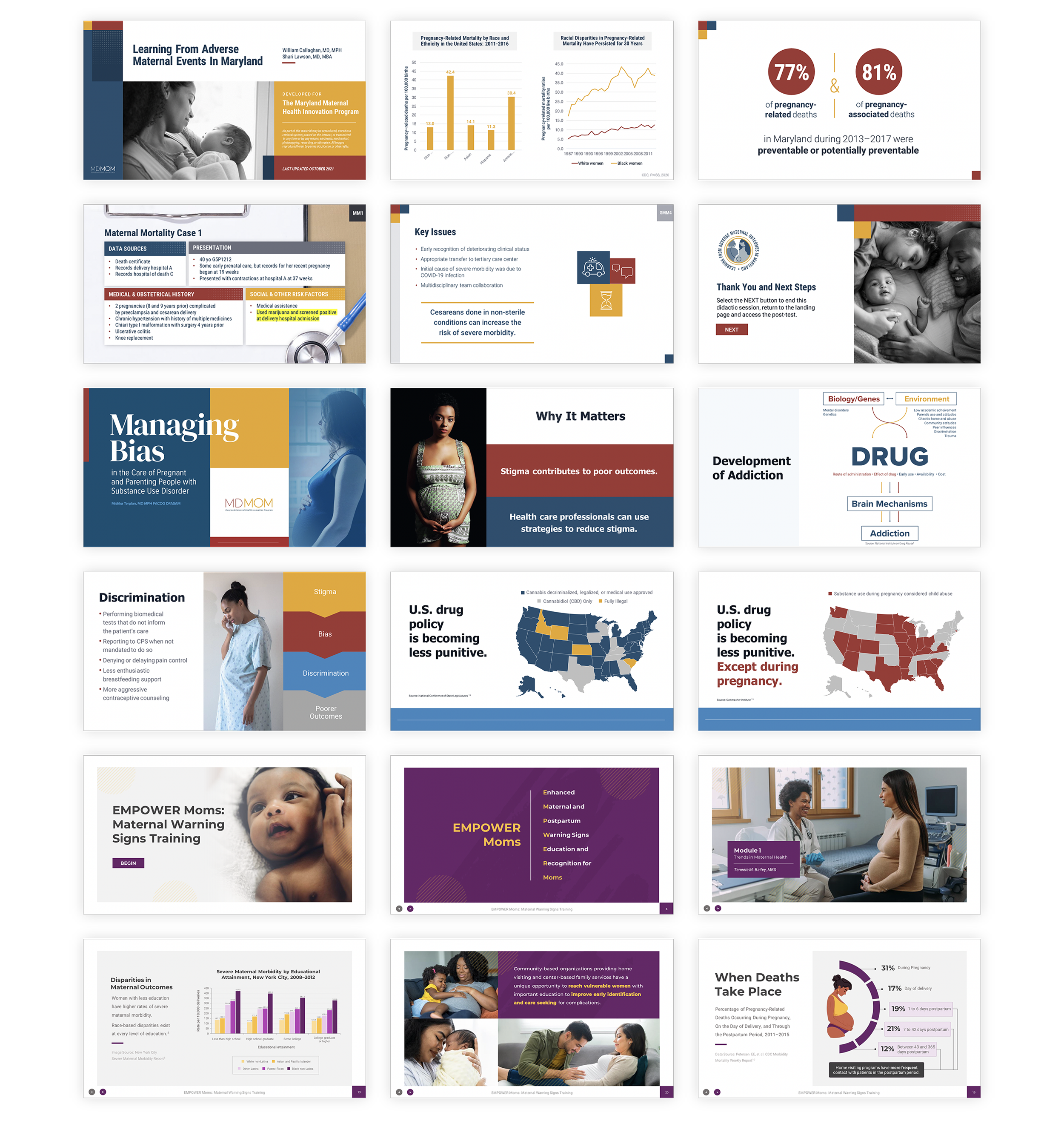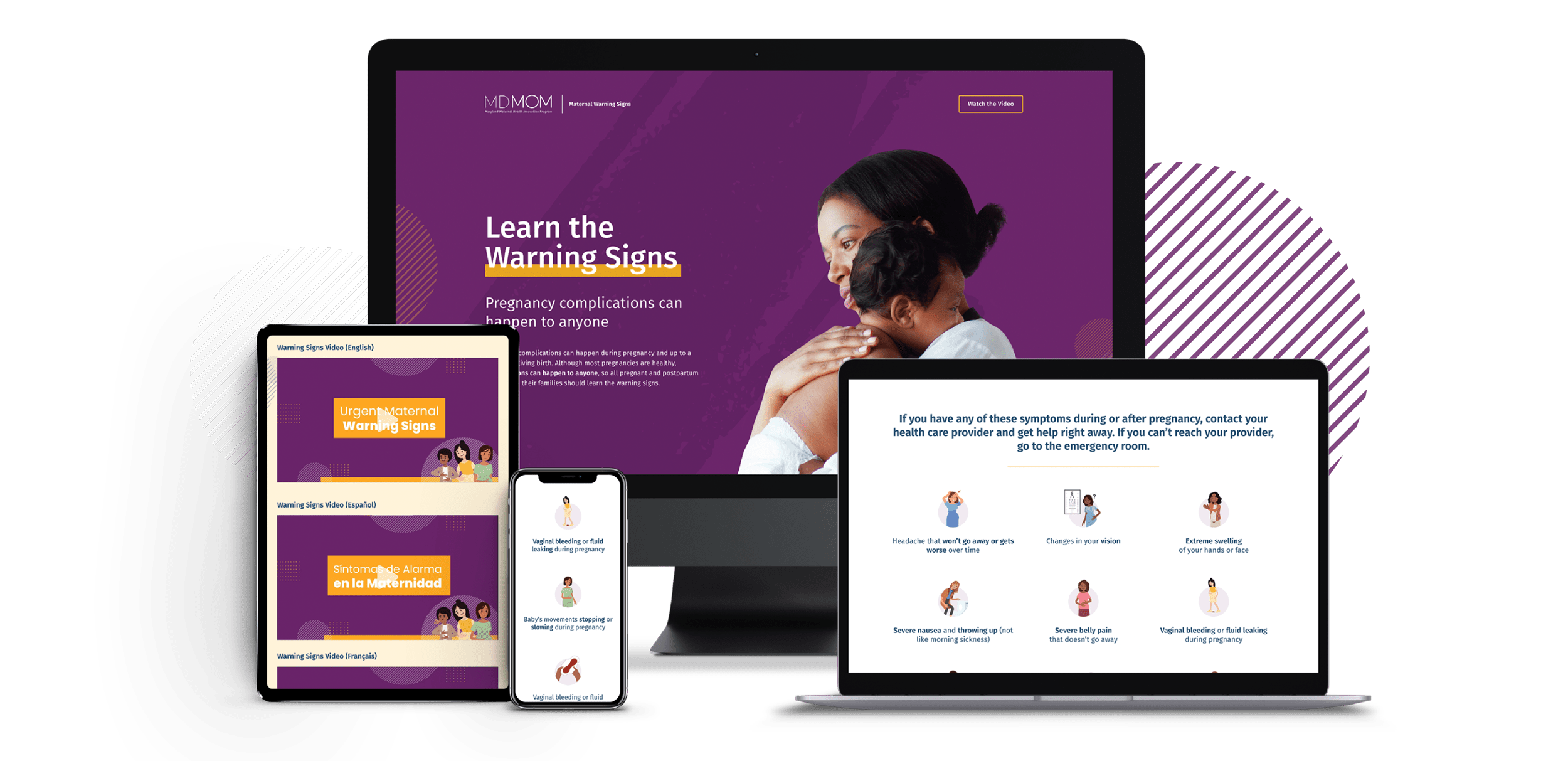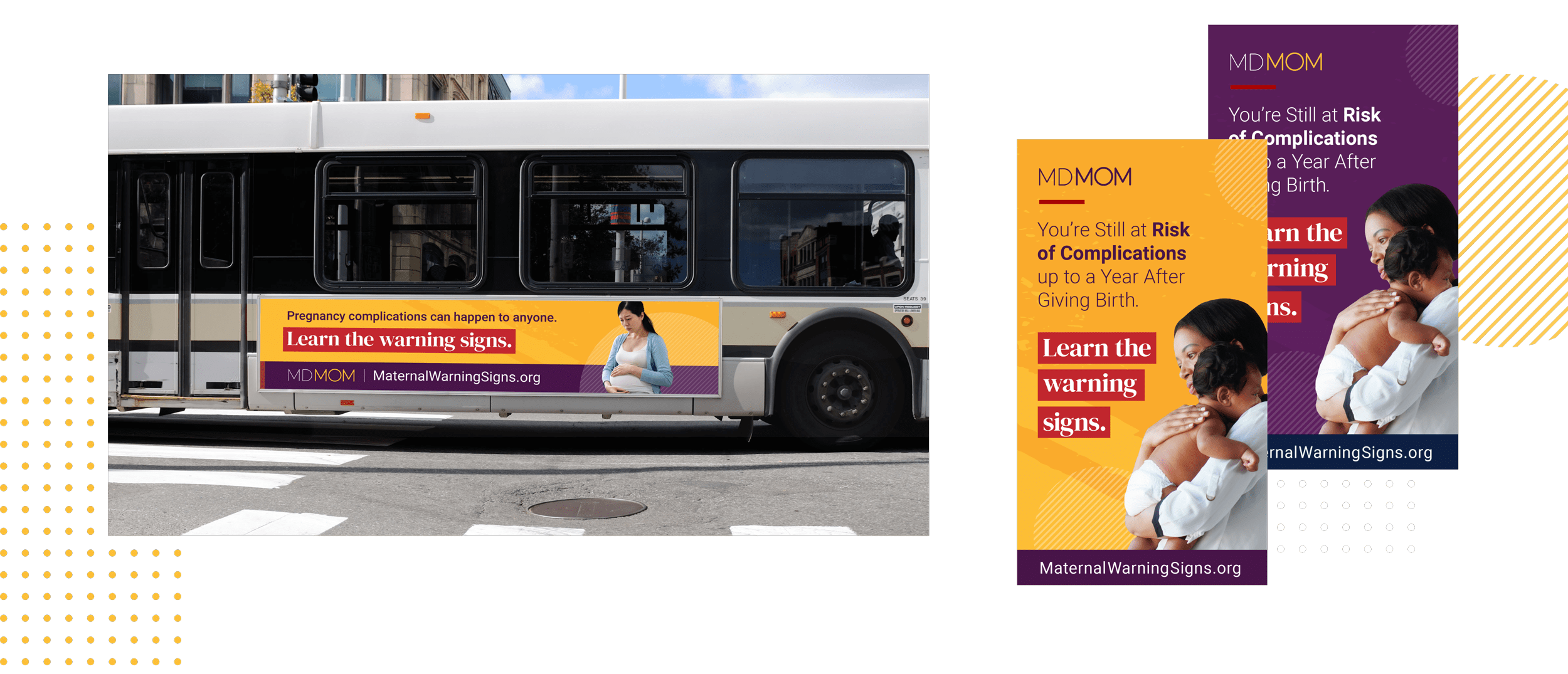Improving Maternal Health Outcomes and Tackling Bias
Overview
The Maryland Maternal Health Innovation Program (MDMOM) is a five-year program to improve maternal health across the state of Maryland by coordinating innovation in the areas of maternal health data, hospital and U.S. home visiting, training, and resource availability. A collaboration among Johns Hopkins University, Maryland Department of Health, Maryland Patient Safety Center, and the University of Maryland, Baltimore County, MDMOM is funded by the Health Resources and Services Administration (HRSA).
Capabilities
Strategic Communications
Branding
Digital Engagement
Paid Media
Creative
Multimedia Production
Website UI/UX
Strategy
The Maryland Maternal Health Innovation Program (MDMOM) is a five-year endeavor that aims to improve maternal health across the state of Maryland by educating providers, home-visiting professionals, and patients with training and resources. Its overarching goal is to create a meaningful learning experience for patients and providers, with a particular focus on underserved communities in Maryland.
Working closely with MDMOM, The Hatcher Group developed a multilayered strategic communications plan to translate sensitive information through powerful messages and products. Throughout our engagement, we’ve developed training courses to address maternal health disparities and bias around substance use disorder among pregnant women; launched a statewide advertising campaign to educate patients about urgent maternal warning signs during pregnancy; produced documentary-style patient testimonial videos; and developed handouts, promotional pieces, and out-of-home signage to reach a wide audience of health care providers, home-visiting professionals, and patients. Currently, Hatcher is readying the launch of a six-month digital advertising campaign to drive MDMOM’s target audience to its Maternal Warning Signs landing page.
Health Care Provider Training Courses
In conjunction with MDMOM input and through careful research, our team set out to create three dynamic training modules. We developed two videos to educate patients about urgent maternal warning signs during pregnancy and adverse maternal outcomes. We produced a third video for providers to educate them on appropriately dealing with the harmful stigma associated with substance use disorder among pregnant women and managing bias in their care of patients with substance use disorder. Following best practices for online learning, Hatcher’s multimedia team recorded voice-overs using MDMOM scripts, and developed slides and “test your knowledge” questions.

Video
Capitalizing on the talents of our multimedia team and complementing the training module on managing bias in the care of patients with substance use disorder, Hatcher filmed and produced three short patient testimonial videos. We chose this approach to humanize the topic and share authentic experiences of patients who experienced substance use while pregnant.
Hatcher also filmed and produced two implicit bias training videos to encourage providers to recognize their own biases of patients with substance use disorder and eliminate bias in their own practice. The first video depicted a scenario in which a provider displayed bias in their interaction with a pregnant patient. The second video depicted the same scenario, but this time showcased positive, bias-free interaction between the patient and provider.
A third video incorporated motion graphic elements depicting an MDMOM team member and an OB/GYN discussing urgent maternal warning signs during pregnancy. Hatcher’s team had the video translated in Spanish and French to appeal to a diverse audience.
Website
In support of the urgent maternal warning signs campaign, Hatcher also designed and developed a campaign landing page for MDMOM to reinforce its “pregnancy complications can happen to anyone” message and support its efforts in improving maternal health outcomes. The landing page offers helpful guidance in identifying key warning signs with infographic content and links to the Warning Signs video in three languages.

Transit and Display Ads
Hatcher also designed and placed transit ads on buses in Baltimore and Maryland’s Prince George’s County to promote maternal warning sign information to a diverse mix of communities. To complement the entire mix of campaign elements, including the out-of-home campaign, Hatcher is now implementing a six-month digital ad campaign statewide to drive visitors to the MDMOM landing page.

Handouts and Magnets
In addition to the training courses, videos, website, and ads, Hatcher has produced several handouts and promotional pieces, including magnets for patients, providers, and home health professionals. These simple but effective measures work in concert to improve maternal health care, educate expecting mothers about critical warning signs, guide providers in bias-free practices, and create meaningful experiences for all stakeholders.

Our Impact
- Produced several training products to share with Maryland hospitals to improve maternal health outcomes, reduce bias in health care, and enhance education around maternal health disparities in Maryland.
- Increased both patient and provider awareness of urgent maternal warning signs.
- Created materials designed to stimulate important conversations between pregnant patients and providers.